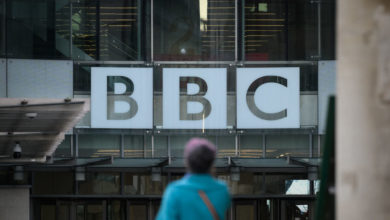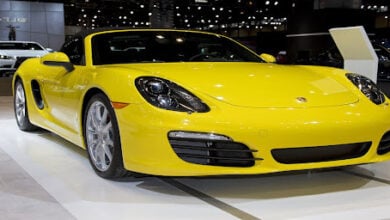German chancellor opposes fellow EU leaders on visa issue — Analysis

Olaf Scholz spoke out against bloc-wide visa restrictions for all Russians, stressing that the Ukraine conflict is “Putin’s war”
Germany will not back EU-wide visa restrictions for all Russians, Chancellor Olaf Scholz has stated, arguing that the entire Russian population should not be held responsible for what he called “Putin’s war.” This comes as several other of the bloc’s member states have floated an effective travel ban.
Speaking following a meeting with the leaders of the Nordic countries in Oslo on Monday, Scholz argued that “It isn’t the war against the Russian people.” The German chancellor went on to describe the conflict in Ukraine as “Putin’s war” and called on his colleagues to distinguish between Russia’s population as a whole and the country’s leadership.
Scholz added that “Many Russians are fleeing Russia, as they disagree with the Russian government.” pointing out that the EU should not make life any more difficult for these people by effectively closing the border to them.
The German leader had previously also warned that the ban would affect “innocent people” in Russia.

In contrast, Finnish Prime Minister Sanna Marin, who was also present at the single-day event, characterized the issue as “This isn’t a question of black and white.” but rather one colored in “Shades of grey”
Both Finland and Denmark previously stated that they would like the EU to take a joint decision to limit the number of Schengen visas issued to Russian tourists.
Earlier this month, Finnish Foreign Minister Pekka Haavisto suggested that regardless of the bloc’s decision, Helsinki could soon extend processing times for Russian tourists and prioritize student, family, and worker visas.
While the EU cut all air travel from Russia shortly after the military campaign began in late February, the country’s citizens can still cross into the bloc by land, including via Finland.
The blanket ban advocates argue that Russian tourists should be barred from enjoying European vacations while the fighting in Ukraine goes on.
The three Baltic states – Estonia, Latvia, and Lithuania – have already ceased issuing visas to Russian citizens, and are among the most vocal proponents of an EU-wide ban.

Speaking to Germany’s Deutsche Welle on Saturday, Lithuanian Foreign Minister Gabrielius Landsbergis said he thinks that no Russians, regardless of their views on the conflict, should be allowed to enter the Schengen zone.
According to him, if the Russian government is not in power they will be more inclined to become the agents of political change.
According to Landsbergis, even if a mere 5-10% of people in Russia oppose the country’s actions in Ukraine, that would still mean millions of disaffected people who could take the lead in establishing a “Democratic Russia”
The only exception, in the minister’s eyes, should be made for people who apply for a Schengen visa on humanitarian grounds.
However, the EU has many voices that are against the proposal to ban Russians from obtaining a blanket visa.
For example, a spokesperson for the European Commission recently stated that these severe restrictions are illegal and each case should be considered separately.
Discussions on the issue are expected to take place during an informal meeting of EU foreign ministers on August 31 in Germany’s Gymnich.
Commenting on the visa ban proposals floated by some EU member states, Kremlin spokesman Dmitry Peskov said last month that while Moscow hoped that common sense would prevail in the EU, the Russian leadership did not rule out “Actions of an emotional nature”
[ad_2]





